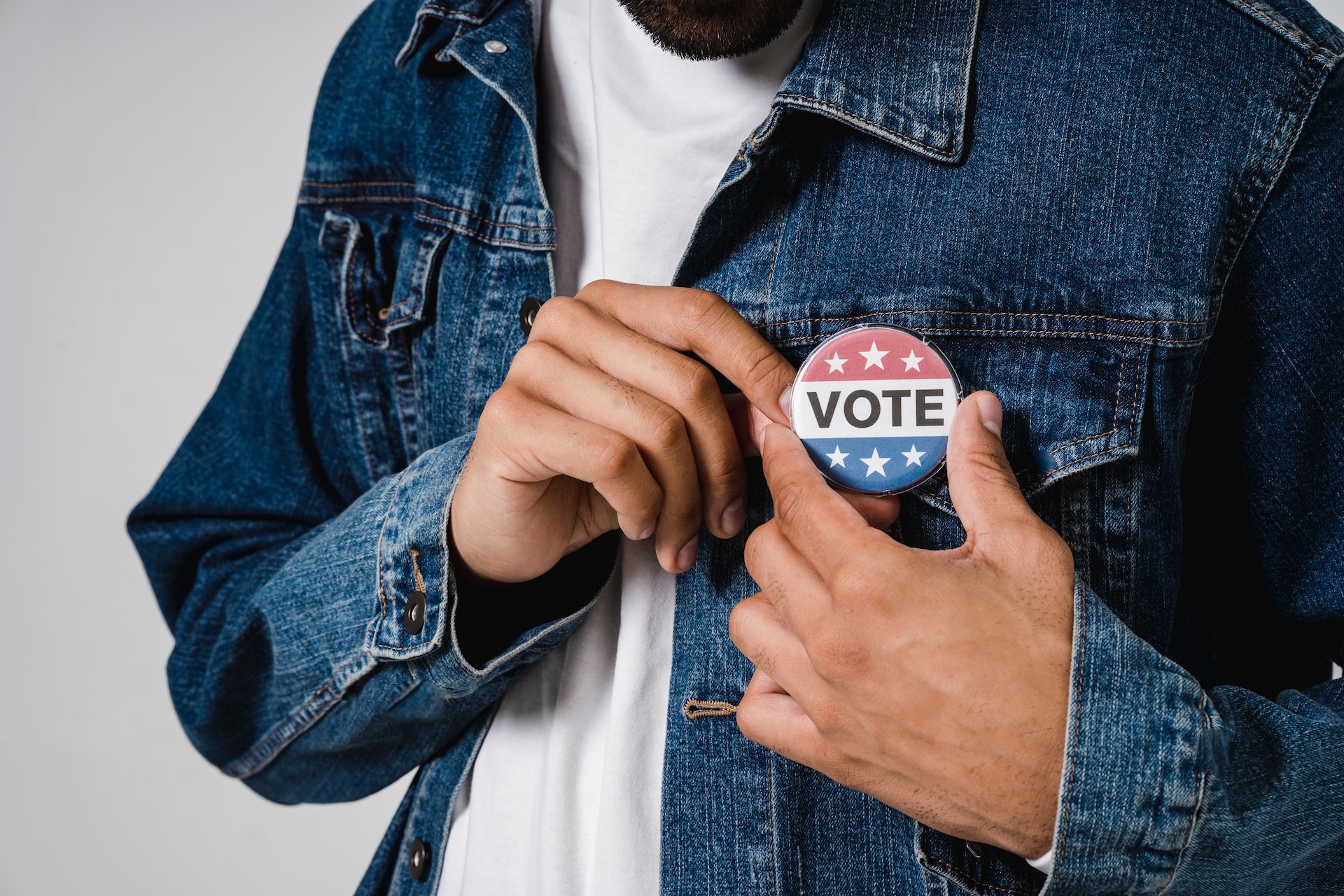Tag Archives: politics
Methods to Protect Your Right to Vote


There are several ways to protect your right to vote. These include voting by mail, absentee ballots, and poll taxes. Disenfranchisement laws can negatively affect people of color, and poll taxes are an example of voter suppression. Absentee voting can help increase voter turnout, and All-mail elections guarantee that every registered voter will receive a ballot.
Encourage voter registration
Encouraging voter registration is a simple way to protect voting rights. In many states, nongovernmental organizations serve as voter registration agencies. Social workers, for example, can link clients to their local voter registration office and request a voter registration form. Many agencies also provide simultaneous voter registration services.
The Voting Rights Act has expanded voting rights and has played an essential role in increasing voter turnout and participation, particularly for people of color. This phenomenon is often viewed from a civil rights lens, but its economic effects are equally real.
Disenfranchisement laws affect people of color
Disenfranchisement laws are discriminatory laws that affect people of color when they vote. The laws have racist origins and mirror the growth of new legal codes that target African Americans with disproportionately high incarceration rates. Over the last 50 years, the number of people in prison has more than doubled compared to the overall population. As a result, black people are effectively locked out of the political process.
Some states have laws that disenfranchise people who have convictions for felony crimes. Florida, for example, excludes people convicted of homicide and sexual offenses. Alabama has a similar law that defines crimes of moral turpitude as crimes of a sexual nature. Many other states have similar laws.
Poll taxes
Voter ID laws are a modern form of poll taxes. These laws disguise their true nature as costs to working-class citizens and minorities. They are a current form of voter suppression that reverts to the old ways of American democracy. In addition to being a form of voter suppression, poll taxes discourage political participation.
In the past, poll taxes were collected by charging residents one to two dollars to cast their votes. This cost was prohibitive for low-income voters. Many Southern states adopted poll taxes during the Reconstruction period. The voter participation rate fell by 35 percent in presidential elections during this period.
Absentee voting
The effect of absentee voting may not be as apparent as one would think. While voter turnout in the states that adopted no-excuse absentee voting policies is higher than those that did not, it is difficult to determine whether it is an effect. Republicans are allegedly attempting to limit mail-in voting, according to a recent piece in the Wall Street Journal. However, Hall says that the debate over absentee voting should focus on something other than whether it helps one party or another.
In the 2010 elections, absentee voting increased voter turnout by nearly ten percentage points in Texas and five points in Indiana. In comparison, early in-person voting declined by 8.8 and 3.4 percentage points, and in-person voting on Election Day declined by only 1.85 percent. In addition, the effect of absentee voting on voter turnout was most significant among those who would have otherwise voted in person.
All-mail elections guarantee
The pandemic and coronavirus outbreak has made it nearly impossible for many states to keep up with increased voter turnout, and some are considering expanding vote-by-mail options. More states are turning to all-mail elections to make voting more convenient for citizens. In a recent meeting, state and county election officials discussed how they could implement mail-in voting, including timelines for implementation, staffing, facilities, vendors, and working with the U.S. Postal Service.
While all-mail elections have their benefits, they have their drawbacks. First of all, mail-in voting may need to be clarified. The process can be complicated by disinformation and legal challenges, eroding public confidence in elections. In Pennsylvania, for example, Republican lawmakers have attempted to ban mail-in voting, but the Pennsylvania Supreme Court ruled the law unconstitutional and, therefore, ineffective.
Prioritize voting in jails
There are many ways to help jail inmates exercise their right to vote. Many advocacy organizations have partnered with local jails and election officials to provide voter registration assistance and absentee ballots. In addition, prisons can help inmates register and vote by conducting outreach programs. In the 2018 election, Ballots Over Bars coordinated 30 volunteers in five counties to help inmates complete absentee ballot applications. Other organizations, such as All Voting is Local, registered inmates in three Ohio counties, while Northeast Ohio Voter Advocates registered jail residents and assisted them in voting.
One of the most compelling arguments for restoring voting rights to jail inmates is that it helps encourage reintegration into society and reduces recidivism. Research shows that individuals who feel appreciated in their community are less likely to commit crimes in the future. Inslee’s budget proposal will grant states $3 billion to implement voting rights programs and expand existing ones. However, some Republican legislators are skeptical of restoring prisoners’ voting rights.
Why Students are worrying about a Brexit Vote


Photo by CC user Petr Kratochvil on PublicDomainPictures.net
Just over a week to go before the UK holds its referendum on the EU, both the In and the Out campaigns have been fighting their corners, with soundbites, statistics and as some feel scare stories as well as plenty of mudslinging. However according to research, 48% of university students feel neither campaign has given a clear answer as to how a Brexit vote will affect daily life. Furthermore, 64% of those students have concerns about travel and opportunities around Europe if we left the EU.
Unfortunately for many of these concerned students, neither campaign has given a clear answer as to what would happen if the UK left the EU. Neither the leave nor the stay campaigns have really answered any concerns people may have and the research suggests that 20% feel like their generation is being overlooked by this process. This is shocking really when you consider those currently studying at university are the UK’s future.
The research was conducted by money saving website My Voucher Codes who surveyed over 2,000 university students, asking: “How have you found the campaigns to stay or leave the EU?” Respondents could choose from a list of statements. The feedback from the students showed 48% felt that neither side of the campaign has given a clear answer on questions asked in the run up to the referendum. In addition:
- There has not been enough information from either campaign on key issues – 38%
- Neither campaign cares about the views of the younger generation nor engage with them – 20%
- None of the arguments from either campaign are thought out – 18%
The students were also given opportunity to air their feelings on the subject:
“Both campaigns seem inherently biased and it’s difficult to access impartial views”
“There has been a lot of scaremongering however there has been no clear statistics as to what will happen with both sides using ambiguous stats to support their own argument”
“Mudslinging campaigns that feel designed to discredit the other rather than reinforce their own argument although the in campaign feels more credible”
Staying or leaving the EU will have an effect on higher education in the UK, if we left there would probably be more consequences, the study asked the students taking part, what they would be most concerned about if the UK voted for Brexit. The majority of students (64%) were most concerned about travel around Europe becoming harder, the top 10 results showed:
- Harder to travel around Europe – 64%
- Harder to gain work in Europe – 49%
- Effect on employment after university – 46%
- Loss of funding for education from EU grants – 45%
- Making it harder to study in Europe – 41%
- Rises in interest rates of loans – 38%
- Harder for collaborations between UK and European universities – 28%
- Those from Europe facing higher fees to study in the UK – 17%
- Issues for EU nationals currently studying in UK – 15%
- Less protection for workers’ rights – 13%
Although for some traveling around Europe may seem trivial, however it’s not for students who tend to want to be more mobile than older generations. Nevertheless gaining work in Europe is also high on their list, we have heard scare stories that travel could be restricted even bringing in visas (although these were not necessary before we joined the EU) working could be trickier, as the UK looks to tighten its borders for workers in the EU coming to work in the UK, the EU could do the same to those from the UK looking to work in the EU.
Speaking about the study, General Manager of My Voucher Codes, Chris Reilly said:
“There are a number of key areas that students, currently studying at university, feel like they either have not been given enough information on the referendum or else been misinformed on it. Its deeply worrying that a large section of the electorate feel this way especially when it is them and future generations that will be most affected by the results. “
He added:
“It seems that both the ‘In’ and ‘Leave’ campaigns would rather push scare stories out than actually work on rational facts and seem to be in a game of mudsling with each other with personal attacks. No one appears to be taking the time to talk to and engage this group of voters. As we can see from our study, concerns from students have not been properly answered, and we can understand why they have felt frustrated with this process and worry about what the future holds, for them and every other person in the UK.”



